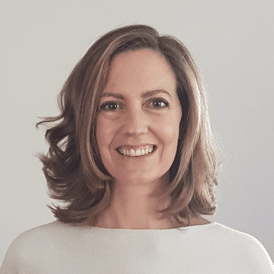The translation profession is constantly changing, but one thing never changes: we cannot succeed as a translation agency without taking care of our freelance linguists. At Acolad Community, we aim to accompany you and help you keep abreast of the latest news of the language services sector and new technologies.
The relationships between translation agencies and freelance linguists are one of the pillars of the modern translation industry. We believe that goodwill and trust are what it takes to work under optimal conditions.
On May 20th we organized an online roundtable on the topic of Building trustful partnerships between translation agencies and freelancers.
Over 120 attendees learned what soft skills are appreciated at Acolad
Marion, our Community Manager invited two Acolad language services managers and two freelance translators to participate in the roundtable discussions:
- Magali Boularand and Inés Sancho-Arroyo, freelance translators
- Tanja Majerle, Project Manager (Acolad Nordics)
- Anne Ronge, Resource Manager (Acolad Deutschland)
More than 120 attendees joined the session to get insightful tips about setting up positive and trusting relationships with language services experts!
This was an opportunity for the panelists to exchange experiences, best practices and slip-ups to avoid on the following topics:
- The dos and don’ts when applying to agencies
- Applying as a freelance linguist: Acolad’s requirements regarding profiles
- Building a trustful relationship with Acolad
The questions discussed included Acolad’s requirements regarding applications, what platforms our Vendor Management teams use and the non-linguistic aspects of a project on which we can help you.

If we could sum up the soft skills that are the most essential for smooth and efficient communication, they would be:
- Kindness
- Transparency (or honesty)
- Responsiveness
- Problem-solving
We have recorded the session – just click right here to watch it!
A rewarding exchange for all participants
The session was a very positive experience for everyone. Our hosts created a relaxed and insightful atmosphere by sharing their experiences and tips for communicating as smoothly and openly as possible.
Marion guided the discussion with a very natural kindness, empathy and real interest for the hosts, so she made them feel comfortable and conveyed openness and enthusiasm. This was a real, lively discussion full of important points raised regarding soft skills to display. 🌟
Our hosts enjoyed the roundtable and hearing each other’s perspectives and learning about their experiences. It was even the first roundtable ever for some of them!

“Thank you so much for giving me the opportunity to participate in this roundtable. It was an honor, and I had a great time! It’s wonderful to feel accompanied and to see that our way of working is appreciated despite the lack of physical contact and the supposedly “coldness” of e-mails. 😊 “ (Inés)

“I had a great time and enjoyed the exchange. Thank you for your perfect organization and for creating a wonderful atmosphere of exchange and experience sharing.” (Magali)
Questions from the roundtable – what participates in trustful relationships
If you want more tips to strengthen relationships with translation agencies, we recommend that you take the time to read the answers our Project and Resource Managers provided:
How important is the impression somebody makes in the actual initial letter/application i.e. does it have to be written in a certain way, except the required information? Also, do you like it when somebody tries to stand out with e.g. graphics or even emojis?
Anne: I always appreciate it when I can see that someone has the ability to keep it short and simple, including only the necessary information and writing in an easily flowing style. Emojis are not necessarily a good fit in a cover letter, but I don’t mind them in an email.
How much time do you think should we translators wait to ask for a feedback from a test or a first translation?
Anne: You should receive some feedback within a few days after delivery, so don’t hesitate to ask if you don’t hear from the PM within that time frame. No news is usually good news, but it can’t hurt to confirm.
How would the PMs consider someone contacting them just because no work has been sent to them for a long time? Should the translator believe that just because they are in the database they will be sent work, or do they have some preferred translators in each language pair and just contact others when they are unavailable?
Anne: I recommend that you contact your Resource Manager so that they can keep your availability in mind. That way, they can ask the project managers to start sending you job offers when suitable assignments are available.
I have worked for you sporadically for several years. What can I do to work more regularly for you?
Virginia: This depends on many factors: Your language combination(s), CAT tools you are able to work with, rates, services offered (post-editing, for example), quality, and so on. I’ve also noticed from being involved on the production side in the past that new vendors take time to start accepting projects from a new agency, and to get to know their guidelines and processes. We would have to look at your case in detail.
How much does the price of translators influence your choices? Is that client/project based i.e. depending on the budget or do you take the relatively cheapest/best translator anyway?
Virginia: PMs make their decision taking into consideration several factors: quality first of course, preferred pool, availabilities, budget and rate. The strategy may change from one project to another, even though quality remains at the center of everything we do for our customers. Between two partners offering equal quality, rate will remain part of the selection process.
What is your opinion on minimum rates?
Virginia: We believe that every professional should be able and free to define their own rates. However, since quite a few of the clients don’t have minimum rates on their sides, we have to find a compromise in these cases in order to avoid assigning smaller jobs which may add up in the end.
Some time it happens to me that the source text to be translated have a very poor quality, I mean, there are typos or missing words or other words. What is your best practice with this?
Anne: As soon as you notice this, please alert the project manager who sent you the task – some screenshots of examples always come in handy – and ask whether you should proceed.
I work with different Amplexor agencies from different parts of the world and each one has a different invoice procedure. It would help to have an online source where you can find all of them in one document, so it would be easier to address the invoice correctly.
Tanja: Thank you for your feedback! We are currently working on improving our invoicing policy. We are also in the middle of rebranding and merging our legal entities to simplify our legal structure. Once this big project is completed, it will be easier to harmonize and simplify our procedures.
Do you have more tips about soft skills that are essential for smooth communication? Our Facebook group chat is here for sharing experiences – Just click here!
Don’t forget to subscribe to our monthly newsletter if you haven’t already and keep up to date with upcoming training sessions hosted by experts from Acolad.
